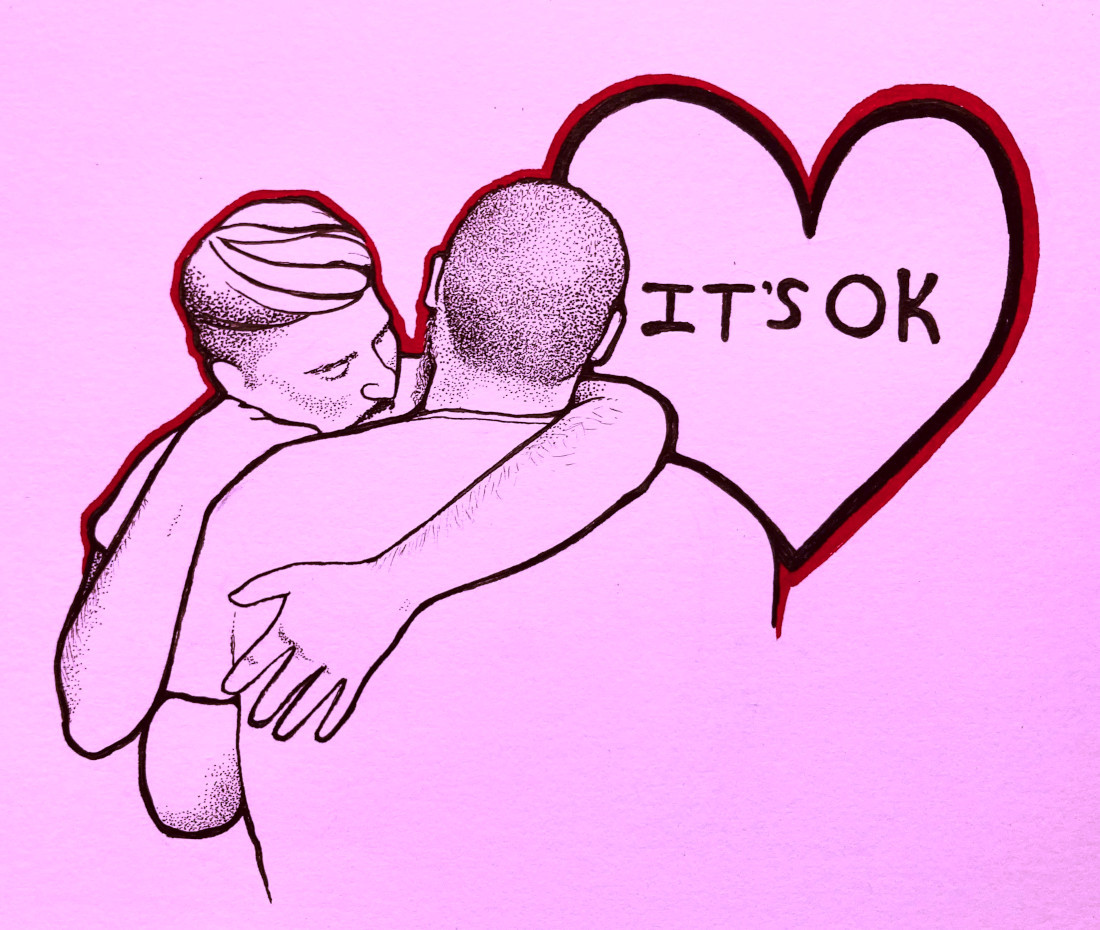So you have an STBBI. I love you.
Mother of Goo
Illustration by Gabrielle Funk
STBBI stands for sexually transmitted and blood-borne infections. Just like there are various types of STBBIs, there are also various ways to both transmit and pick them up. Stigma around STBBIs is still rampant today.
As a person who works in sexual health in multiple capacities, I still find myself correcting folks who slip into using language like “dirty” or “clean” when referring to their STBBI status. I remind them that these types of labels are irrelevant to a person’s diagnoses and only add to the stigma.
During the COVID-19 pandemic, it has been fascinating to watch the parallels between the coronavirus and STBBI diagnoses and disclosure. In the past few months, it’s become more common to see folks openly disclosing their positive COVID status on social media and to loved ones. People have even created memes and posts expressing their “surprise” that they haven’t gotten it “yet” themselves.
What if this same awareness, expectation and acceptance existed for STBBIs? Like being vaccinated, wearing a mask and isolating when sick helps prevent the spread of COVID-19, practicing scientifically supported forms of harm reduction (like using condoms and undergoing regular testing) also helps prevent the spread of STBBIs.
But nothing is 100 per cent. Life happens.
A big part of what makes it so scary to receive an STBBI diagnosis is the weight of stigma. Health is emotional, and it permeates every aspect of our lives. The reality is that all STBBIs are treatable, if not curable.
Informed consent means a person is entitled to be aware of the risks of engaging in an activity that could open them up to the potential of transmission. Not only is this ethically responsible, but it can also be a matter of legality. For example, in Canada, a person is legally obligated to disclose their STBBI status before sexual activity if there is a “significant risk of serious bodily harm.” With HIV specifically, the federal courts have decided that this “risk” means not using a condom and/or having a viral load above 1500 copies/ml.
If you are unable to contact any former sexual partner(s), a public-health nurse can usually reach out on your behalf privately to encourage folks who may have been exposed to get tested. Reaching out to local clinics that specialize in STBBI testing, prevention and treatment if you are unsure how to proceed after a new diagnosis is the best way to receive thorough support.
STBBIs are a common part of life. I love someone with an STBBI, and you almost certainly do, too. If you have an STBBI and are choosing to disclose this to someone, it is normal for some emotions and concerns to arise, but it is not okay to be shamed. You deserve to be met with tenderness and acceptance, full stop. I love you.
Some local clinics this writer recommends:
Klinic Community Health
Nine Circles Community Health Centre
Women’s Health Clinic
Street Connections
—
Madeline Rae is a sex educator and writer living on Treaty 1 territory. She holds a BFA in performative sculpture and a BA in psychology and is beginning her master’s in social work this fall, working toward a career as a sex therapist.
Published in Volume 76, Number 22 of The Uniter (March 23, 2022)







